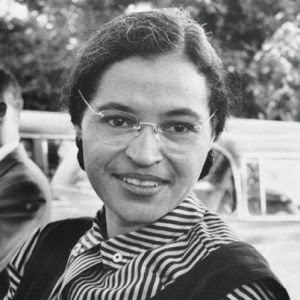HOMER ADOLPH PLESSY
 |
| Homer Adolph Plessy |
Many people are familiar with the story of Rosa Parks and how she bravely refused to give up her seat to a white passenger on a segregated Montgomery city bus. Most people however have never heard of Homer Plessy and how he also refused to move from the white section of a New Orleans street car on June 7, 1892. In the Rosa Parks case segregation would be dealt a blow that would end segregation on public transportation in 1956 and segregation in general would eventually end 9 years later with the passage of the 1964 Civil Rights Act. In the Homer Plessy case segregation would be firmly established by law throughout the United States by the famous Supreme Court case of Plessy vs. Ferguson which established the concept of so-called separate but equal. The decision legalized state-mandated segregation anywhere in the United States so long as the facilities provided for both Blacks and Whites were putatively "equal"
.In both cases a Civil Rights organization purposely planted someone to challenge the law. In Rosa Parks case the N.A.A.C.P. handpicked her to challenge Montgomery's segregation laws regarding the public bus company. There had been others who had defied the law in earlier years but Rosa was picked because of her impeccable character. In Plessy's case he was picked by the Citizens Committee of New Orleans to violate the law in order to test the law in the courts. Plessy could have easily passed for White and could have gotten away with riding in the White section of the streetcar. He was considered seven eighths white. Plessy was a Creole which meant that he had French mixed with Negro ancestry. Ironically his mother was named Rosa and was a seamstress as was Rosa Parks.
Homer was born on March 17, 1862. This was about the time that New Orleans fell to the Union Army and Navy in the Civil War. Plessy grew up in an integrated society because Louisiana and New Orleans was occupied by Union troops enforcing reconstruction and the new 14th and 15th Amendments to the Constitution. Which granted full civil rights to Blacks and enfranchised black voters. Because of the deal that was struck to allow the election of Rutherford B. Hayes, called the Compromise of 1877, Federal troops were withdrawn allowing the ex-Confederates and segregationist Whites to take over the government of Louisiana. As a result segregation laws were enacted. Plessy felt that he had to work to overturn these laws. He was arrested and his case eventually landed in the U.S. Supreme Court in 1896.
The Supreme Court legislating from the bench is nothing new. They did it in 1857 with the Dred Scott decision which historians rank as the worst Supreme Court decision ever. They did it again in the "Separate but equal decision" of Plessy vs. Ferguson. This decision was a clear violation of the 14th Amendment. The lone dissenting vote was cast by Justice John Marshall Harlan,a Kentucky Republican. In his dissenting opinion Justice Harlan wrote, "I am of opinion that the statute of Louisiana is inconsistent with the personal liberty of citizens, White and Black in that state and hostile to both the spirit and letter of the Constitution of the United States."This decision would prop up segregation until the 1954 Brown vs. the Board of Education.decision which would strike it down and totally end it with the 1964 Civil Rights Act. The Civil Rights Act was redundant because It accomplished what the the 14th Amendment had been intended for. Homer Plessy would die at the age of 62 in 1925.
.
 |
| Rosa Park's |



Plessy vs. Ferguson is one of the most famous court decisions in the U.S. I am very familiar with it. What I did not know is that Miss Parks was in collusion with the NAACP; and that her famous city bus episode was orchestrated by them.
ReplyDeletememe time
ReplyDelete